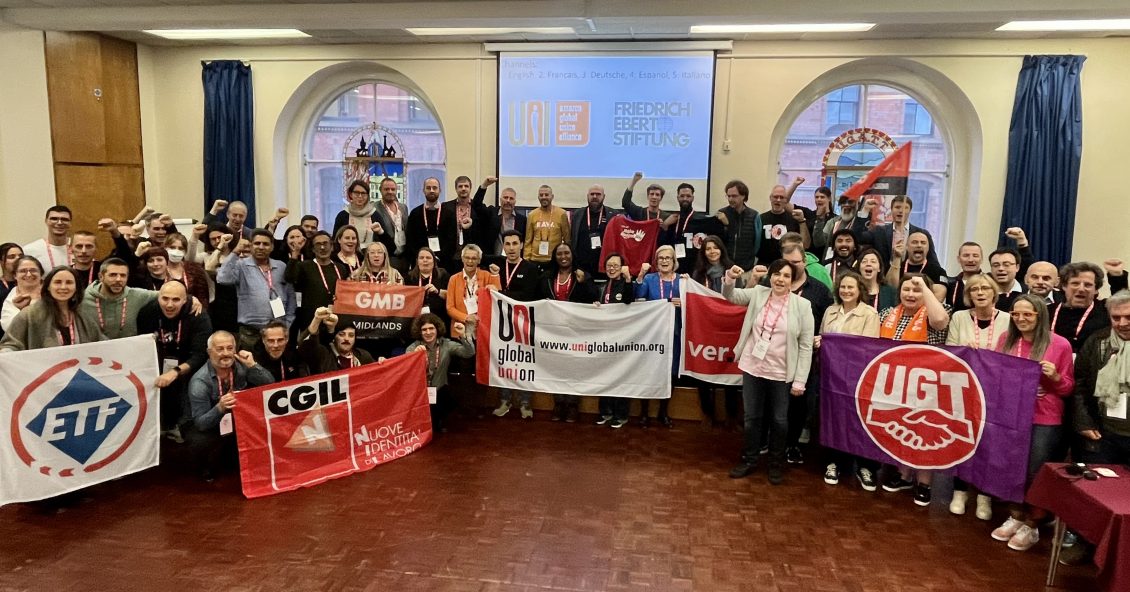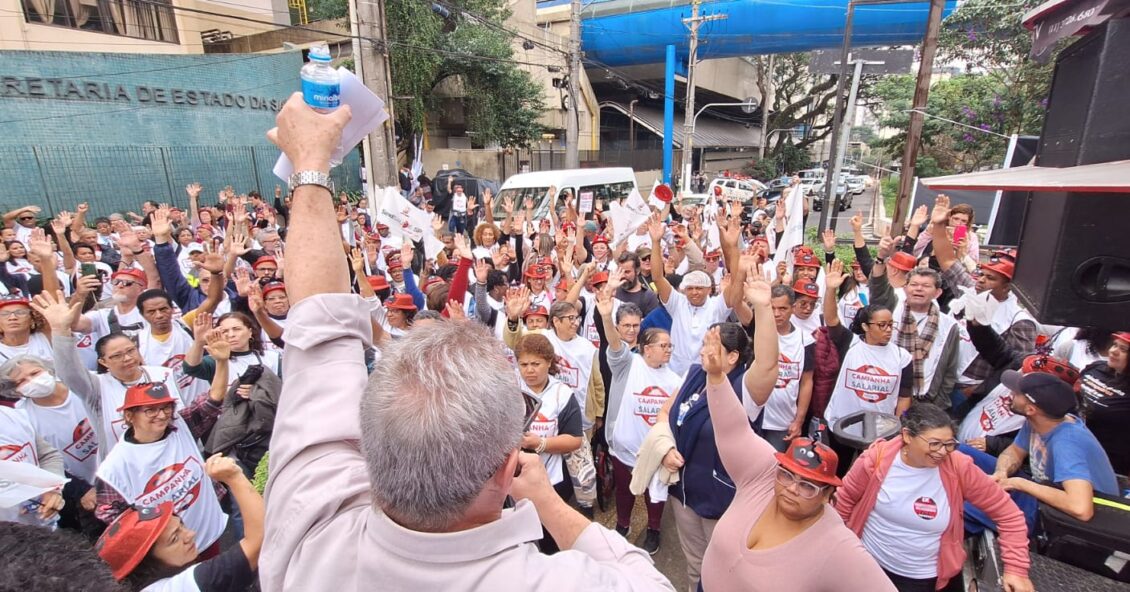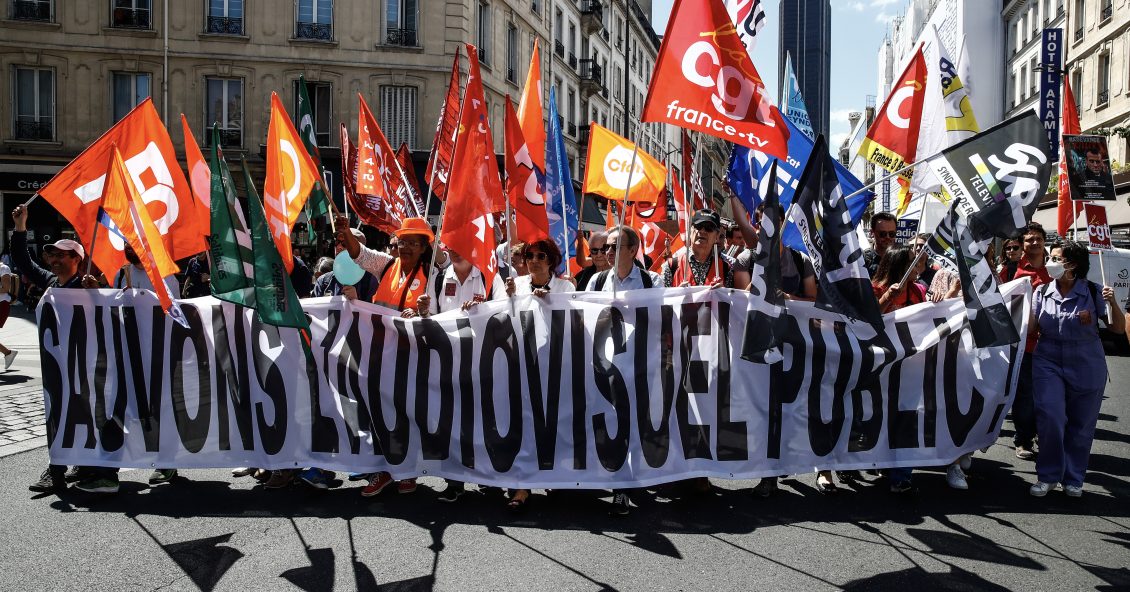At Make Amazon Pay Summit, unions and allies announce Black Friday strikes and protests against Amazon
27.10.23
At a Summit held in Manchester, United Kingdom, on Friday 27 October trade unions and political leaders announced their plans to strike and protest Amazon in over 30 countries around the world on Black Friday, 24 November.
The announcement comes as Amazon released its quarterly earnings yesterday, Thursday 26 October. Amazon saw its profits nearly triple as the revenue reached $143.1 billion.
Christy Hoffman, General Secretary of UNI Global Union, co-convenor of Summit to Make Amazon Pay, said: “It’s important that this community of unions, political leaders and NGOs come together to strategize about using our collective power to end Amazon’s brutality towards workers and its impact on our communities. Its business model destroys the environment and crushes small business, leaving behind a monopoly without ethics or accountability. This is the critical fight for our time and together we can use our strength to Make Amazon Pay.”
The Make Amazon Pay global day of action on Black Friday is set to be the largest yet. Last year, the coalition organised over 135 strikes and protests across 35 countries on Black Friday. This year, Amazon is set to face even more disruption, as workers withdraw their labour, activists protest Amazon Web Services’ environmentally destructive practices, citizens demand the company pay its taxes and small businesses and independent booksellers condemn the giant’s anti-competitive behaviour.
Amazon is facing the biggest challenge to its abuses in the company’s history. In country after country, workers are coming together to demand better pay, conditions and recognition for their unions. In cities, states and countries, regulators and legislators have begun to take action to make Amazon pay for its damage to workers, our communities and the planet.
In the past year, in the UK, warehouse workers have been out on strike. In Germany, Prime Day saw strikes at sites across the country. In the US, Amazon delivery drivers formed the first ever drivers’ union and set up rolling pickets for better pay, safe jobs and union recognition. At the same time, writers in the Writers’ Guild of America won a major victory against Amazon and other film and television production studios, preventing technology being used to drive down working conditions in what once were decent jobs. Outside New Delhi, India, a mass protest by hundreds of warehouse workers forced Amazon into major concessions. In Bangladesh, garment workers rose up with allies across the world to demand Amazon sign the International Accord to protect their safety. And tech workers at its Seattle HQ walked out over Amazon’s greenwashing attempts.
In Barcelona, a progressive municipal government implemented a tax on Amazon’s use of “free” public space for its last-mile deliveries. The Minnesota Senate passed the strongest Amazon warehouse worker protection bill in the US. The Irish Senate passed a law to ban Amazon’s dumping of new and unused products. And in both the United States and Europe, game-changing competition investigations against Amazon are underway that could stop Amazon’s monopolistic practices in their tracks.
Co-convened by UNI Global Union and the Progressive International, the Make Amazon Pay campaign brings together over 80 organisations working towards labour, tax, climate, data and racial justice, and over 400 parliamentarians and tens of thousands of supporters from across the world. Since 2020, the campaign has organised four global days of action — each time growing the planetary movement to stop Amazon squeezing workers, communities and the planet.
Speaking at the Summit to Make Amazon Pay, Bernie Sanders, US Senator, said:
“No company is a better poster child for the corporate greed and arrogance that we are seeing in the U.S., the UK and throughout the world than Amazon.
“This is a company that is worth over $1.3 trillion, not billion, not million. $1.3 trillion. This is a company that made over $12 billion in profits last year. This is a company that spent over 6 billion last year not to improve the lives of their workers or to make its warehouses safer, but on stock buybacks to make its wealthy stockholders even richer. This is a company that spent over $14 million on anti-union consultants and lawyers to prevent Amazon workers from joining a union or signing a first contract.
“Well, brothers and sisters, you know what I think if Mr. Bezos could afford all of those mansions and all of those yachts and all of those rocket ships. He can afford to make sure that when workers at Amazon vote to form a union, that they receive a union contract that is fair and that is just. He can afford to make sure that every Amazon worker makes a living wage with good benefits and reliable schedules, and he can make sure that Amazon is the safest place in the world to work, not one of the most dangerous.”


